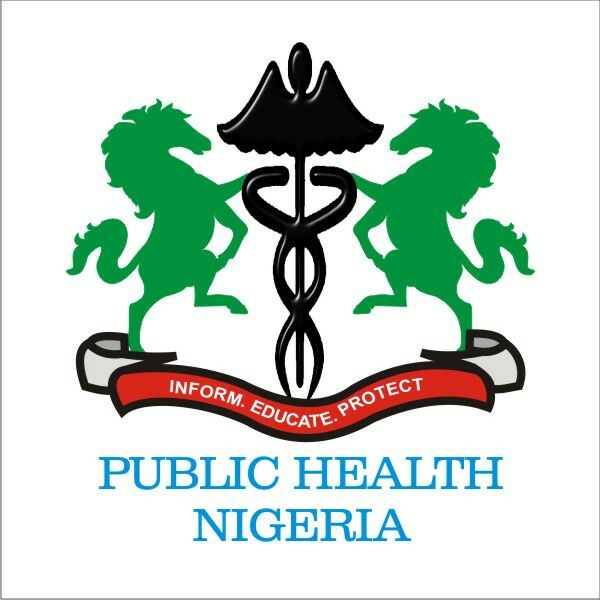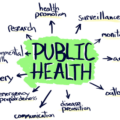What is Public Health Ethics?
Public Health Ethics refers to a system of moral principles that apply values to the practice of public health and scientific research in public health including community medicine. In practice, ethics allow for people, regardless of their race, gender, or religion to be guaranteed quality and principled care. Medical ethics is based on a set of values that public health professionals and other health practitioners can refer to in the case of any confusion or conflict. These values include the principles of non – maleficence, beneficence, respect for autonomy, and justice.
The Nuffield Bioethics Council 2007 and several other seasoned scholars have identified a number of general moral considerations that includes:
- Building and maintaining trust.
- Distributing health benefits fairly, or distributive justice (fair distribution of social goods).
- Producing benefits, often but not exclusively health benefits.
- Protecting non-dominant subgroups from marginalization and stigmatization.
- Preventing harms, often health harms, such as preventable morbidity and premature death.
- Procedural justice (fair process), participation, and transparency.
- Respecting individual autonomy and liberty of action.
- Respecting and fulfilling universal human rights.
- Respecting privacy and confidentiality.
Public health activities and programs routinely brings some of these moral considerations into conflict. One important area concerns the power of public health as an agent of the state to restrict individual choice in efforts to promote health and prevent diseases. While many public health activities try to influence individual actions, in a less restrictive way the impact of certain public health policies may completely eliminate choice altogether, a typical example is the compulsory quarantine of patients with infectious diseases such as Ebola or Lassa fever, another example of restriction of choice is the banning of smoking in some public places.
Paternalism in Healthcare
The major objectives of Public health action is to influence human behavior that arguably does no harm to self and to others. In developed countries of the world chronic diseases account for the majority of deaths, and personal behaviors account for a significant cause of their onset and progression. Current research and action in public health seeks to change behaviors whose consequential effects are felt primarily by those who engage in them.
What is Paternalism?
Paternalism occurs when the state or a situation or an individual interferes with the preferences of a person for his/her own benefit with the sole aim of promoting health. Paternalism also involves limiting a person or group’s freedom or autonomy with sole aim of promoting their own good.
What are the Types of Paternalism Healthcare?
Hard and soft Paternalism
Soft Paternalism: Under this form of paternalism, action can only be justified when an action to be committed is involuntary.
Soft Paternalism Example: An example of soft paternalism is preventing a person from crossing a bridge when we know the bridge is damaged and we are unable to tell the fellow that the bridge is damaged as he doesn’t speak our language. If he knows and intends to jump off the bridge and commit suicide and we allow him this is soft paternalism.
Hard paternalism: Under this form of paternalism, action can only be justified when an action to be committed is voluntary.
Hard Paternalism Example: An example of hard paternalism is forcefully preventing a man who knows a bridge is damaged from crossing the bridge and committing suicide.
Pure and impure Paternalism
Pure paternalism: Under this form of paternalism a person or group of persons have their freedom or autonomy restricted due to their being protected.
Impure paternalism: Under this form of paternalism a person or group of persons have their freedom or autonomy violated and are not just the persons being protected.
Moral and welfare
Moral paternalism: Under this system paternalism is justified to promote the moral well-being of a person or group of persons even if their welfare wouldn’t improve.
Moral paternalism Examples: An example of moral paternalism is preventing a man or woman from prostitution even if they make a decent living from the action and they practice safe sex.
What constitutes a fair distribution of health?
The most important question in the allocation of scarce resource for health is often how to balance the objective of achieving maximum health benefits against genuine concerns relating fairness of the distribution of health. Systematic analysis of social justice and health equity have thrown up a number of basic but important questions, which includes the following:
- Are social inequalities in health unjust?
- Which inequalities are most urgent?
- What constitutes a fair distribution of health?
It is vital to note that, while the utilitarian goal aims to maximize aggregate health, the distributive goals principal objective is to produce a fair distribution of health even though health policies and public health activities tend to produce more health improvement and reduce health inequalities, health initiatives can often reproduce or exacerbate health disparities because individuals who are better off people tend to benefit sooner and disproportionately from most health promotion interventions. The systematic distribution of health in a fair and equitable manner involves two major approaches.
- Constructing Measures Of The Inequality In Health (The Inequality Adjustment Approach)
This involves constructing measures of the inequality in health, in addition to proposing ways of constructing measure of aggregate goodness which can be achieved by combining measures of health inequality and measures of aggregate health.
- Cost-Effectiveness Approach
Distributional objectives are not included into standard cost effectiveness analysis, such goals can easily be accommodated within this approach by attaching distributional weights to health outcomes. This method just as the inequality adjustment approach, will produce an overall measure of goodness that represents both the concern for a fair distribution of health (equity) and the concern for aggregate health (efficiency).
What is participation in health?
Participation in health is defined as a collaborative process that equitably engages members of the community, organizational representatives, researchers, among others in knowledge creation and social change. In practice, such processes produce more equitable and effective outcomes and may also protect non-dominant communities, cultures and tribes from health interventions that will marginalize, stigmatize or place them in a further disadvantaged position.
Parents Right To Refuse Vaccination
As a health personnel there are times you will have to deal with issues related to preventative health measures or interventions that provide little or no benefit to the individual, yet provide substantial or valuable collective benefit to the public’s health.
A typical example being immunization. When most of the people in a community are vaccinated, those who did not receive the vaccines are also protected from the contagious disease due to the lower risk of an outbreak. This is referred to as herd or community immunity. If a patient refuses a legally required immunization in locations where it is mandatory to be immunized either due to personal, religious or cultural beliefs the best and most effective response is to maintain a therapeutic alliance with a child’s parent and gently move in a direction to douse their fears and address their concerns about vaccination by promoting the importance and safety of vaccination.
However, If not legally required, a duly filled informed refusal form, expressing compelling personal, cultural or religious beliefs, may be respected. Vaccination refusal is very common in northern Nigeria, this has exacerbated the polio epidemic and resulted in the eventual return of the wild polio virus after 2 year absence.
How Should Communicable Diseases Be Reported To Public Health Authorities?
Each country or state has specific protocols and or guidelines that identify specific diseases with public health implications, such as communicable diseases, which require mandatory reporting. If you are uncertain whether reporting is required or not it is often advised that you contact the local public health authority for clarifications and further guidance. Beyond this statutory or legal requirement lies the ethical question of when it is justified to potentially break the code of confidentiality to protect the public’s interest or health.
It is ethically justified and morally correct to disclose a diagnosis to public health authorities if the potential risk to the general public has the following characteristics:
- The magnitude of risk is serious.
- The probability of risk is high.
- The risk relates to an identifiable individual or group
Public Health Nigeria an Interdisciplinary public health movement focused on health education, advancing fair public health policies, promoting fitness, healthy diets, responsible behavior, community health and general well-being.






Public health is the key to success in a nigerian community where ignorance, social stigma, full acceptance and participation of local and untrained medical practitioner’s is at high benefits among local communities.
But challenge is public health practice are not handed by public health professionals. Attention is needed.